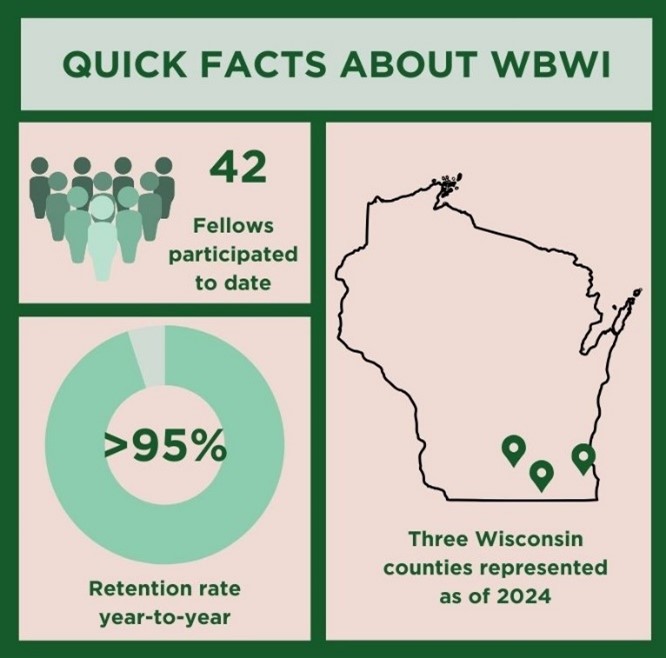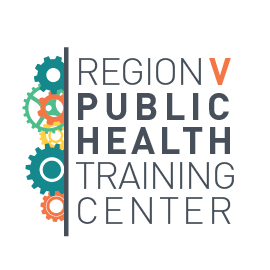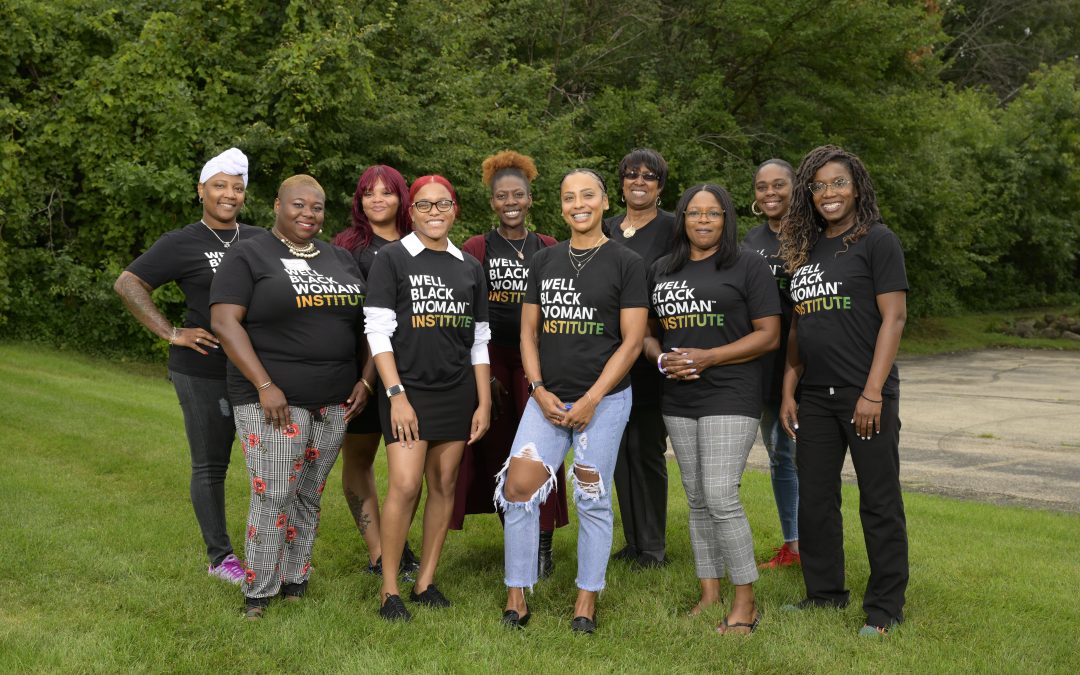By Jasmia Hamilton, MS, MA and Lisa Peyton, MSEd, Foundation for Black Women’s Wellness; Olivia Little, PhD, Laetitia Zeba, MPH, and Sheri Johnson, PhD, University of Wisconsin Population Health Institute
In public health, calls abound to strengthen workforce capacity and resilience, to meaningfully engage communities and to address power imbalances that lead to inequitable outcomes. Racism is increasingly recognized as a public health crisis that needs to be addressed with utmost urgency. Building trust, transparency, and partnership between institutions and communities is essential for ensuring the effectiveness of public health efforts. Yet, we are lagging in power-shifting and power-building models that can help us meet these goals.
One promising opportunity that we have is to turn our attention and investment to community-led initiatives, strategies, and solutions that build the power and capacity of populations most impacted by health and social inequities.
The Well Black Woman® Institute (WBWI), developed by the Foundation for Black Women’s Wellness, is an innovative leadership development program for Black women in Wisconsin. WBWI is grounded in a theory of change that centers Black women as a locus of power and impact in order to drive transformation at the personal, community, and systems levels. WBWI builds the knowledge, skills, and capacity of Black women to become health equity advocates, leaders, and change agents within their communities and across the state.

WBWI consists of an 8-month training experience for small learning cohorts of 10-15 Fellows each year, with both virtual and in-person components. Fellows from Wisconsin engage in a rich, interactive curriculum taught by Foundation staff and other content experts that covers health equity, leadership, civic engagement, advocacy, and organizing. Fellows remain engaged for 2 years as mentors to new cohorts and as partners with the Foundation to inform, co-lead, and advocate for health equity. WBWI also works to position Fellows with local and state leaders, systems partners, and mentors to leverage collective efforts that respond to health equity gaps.
A robust evaluation, in partnership with the University of Wisconsin Population Health Institute, is already showing evidence of WBWI’s effectiveness. Assessment data from the first two annual WBWI cohorts shows significant increases in knowledge and skills aligned with the WBWI curriculum. Fellows report that WBWI enhances their:
- Confidence and skills as a leader;
- Ability to effectively communicate about equity issues;
- Feelings of social support and connectedness; and
- Likelihood to be civically engaged.
“This program has given me the confidence needed to truly stand strong as an advocate for myself and other women and families and has motivated and inspired me to get to the work.” – Past Participant
So what makes WBWI unique and effective?
- It is designed BY and FOR Black women.
- It centers participants’ lived experiences in their leadership development.
- It creates space for addressing and healing from trauma as integral to the model.
- It builds a sense of belonging and support across cohorts.
- It focuses on actionable skills and relationship building that can affect change.
A key learning from the initial evaluation was the importance of nurturing spaces for Black women leaders to process, understand, and transform their lived experiences of racialized, gender-based, and/or social trauma. Community-based leadership training is critical for interrupting social and professional isolation experienced by Black women in social impact or justice-focused careers.
“Taking in the historical context has been especially impactful. It is healing to recognize my connection to a legacy of Black women working toward health and wellness for ourselves and our community in a setting of unjust conditions. We have been doing it all along.” – Past Participant
Our status quo ways of working are not sufficient to advance health equity. We need to invest in leadership strategies by and for those who are experiencing injustices. And we must recognize the crucial need to invest in spaces of safety, belonging, and healing in order to support and strengthen that leadership. With its early success and its potential for replicability and scalability in other places, the WBWI is a promising approach to building leadership capacity in ways that benefit public health and other health, human service, and social justice areas.
To learn more, check out these resources:
- The Well Black Woman® Institute (WBWI)
- The Foundation for Black Women’s Wellness

